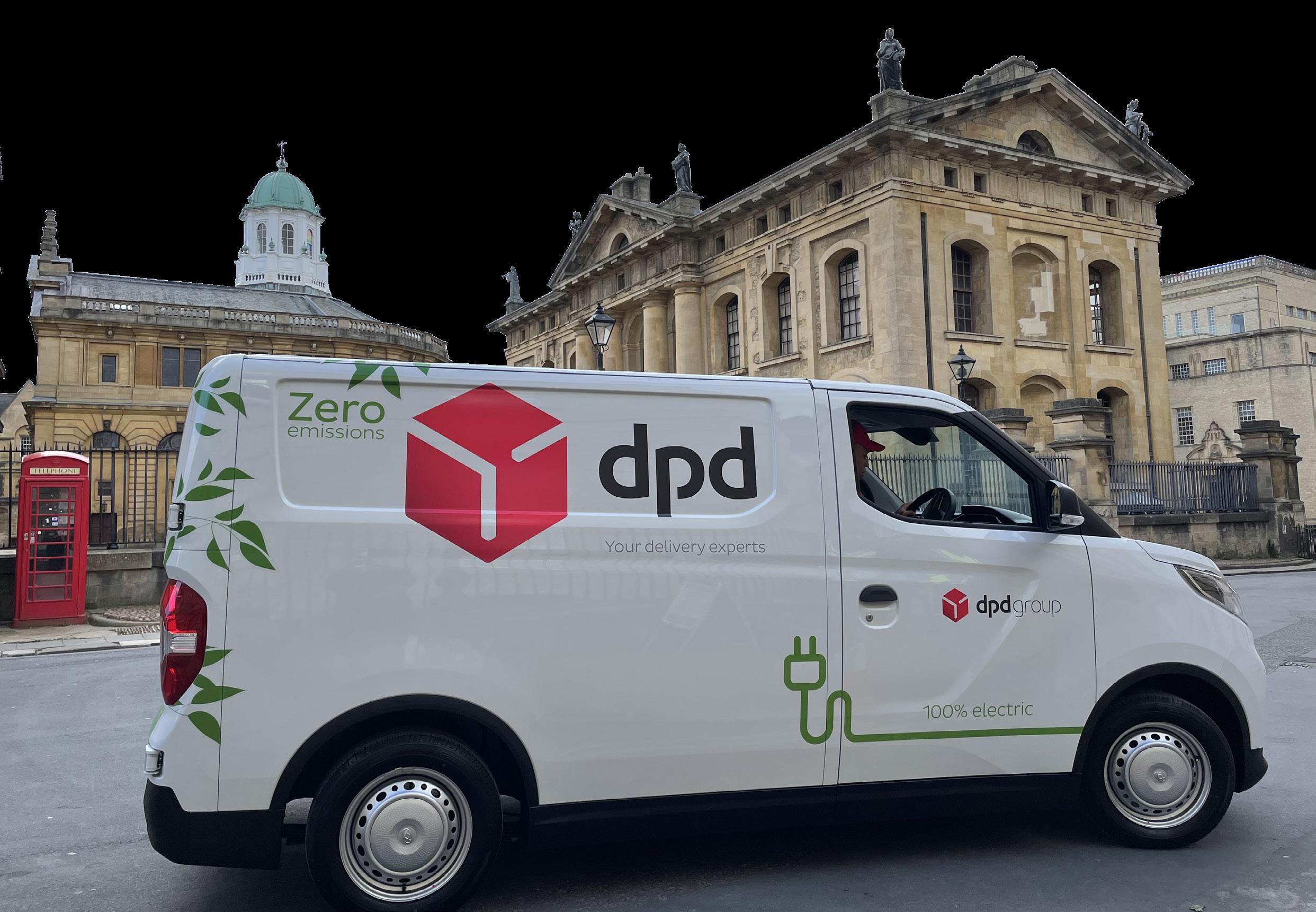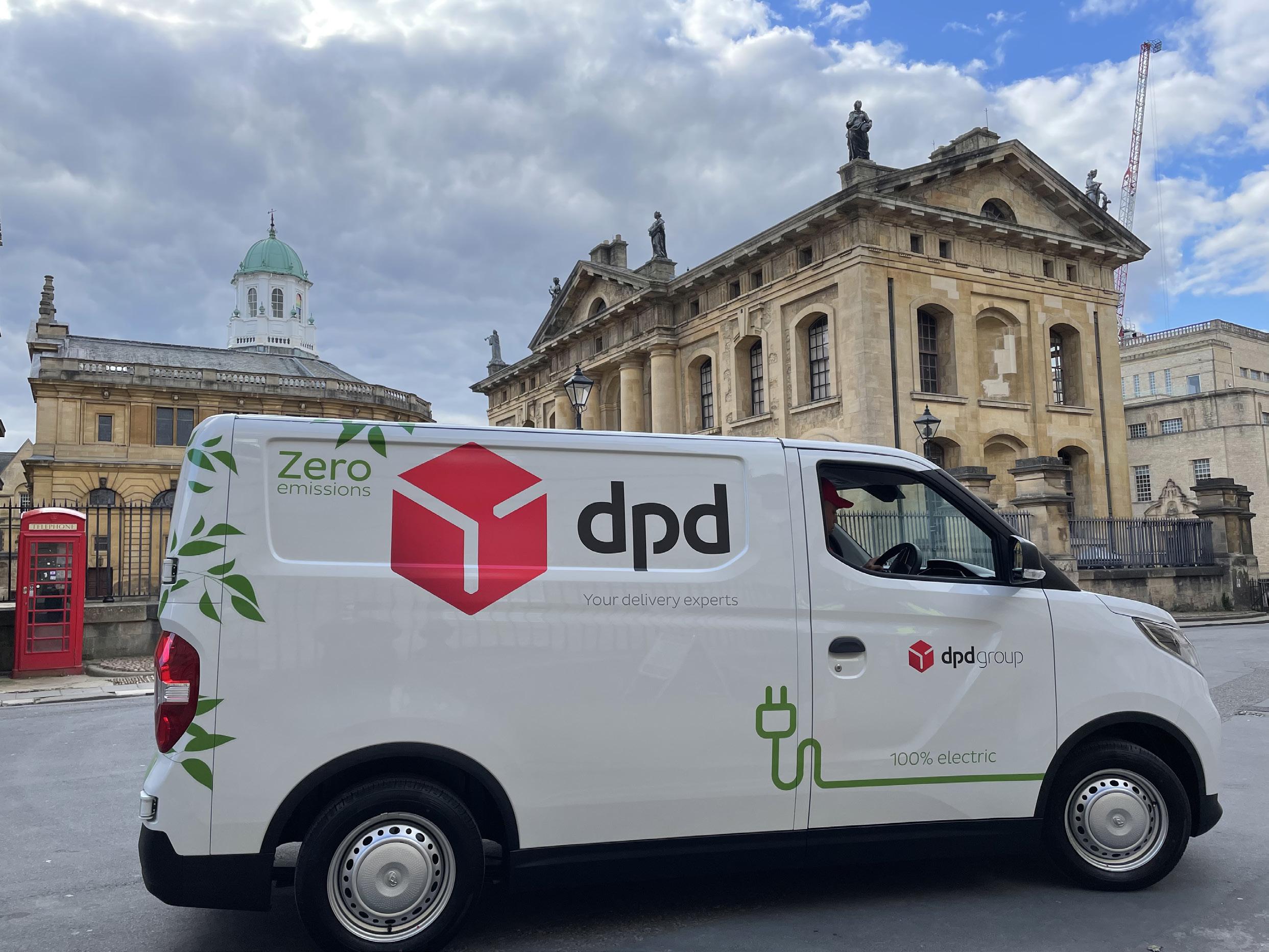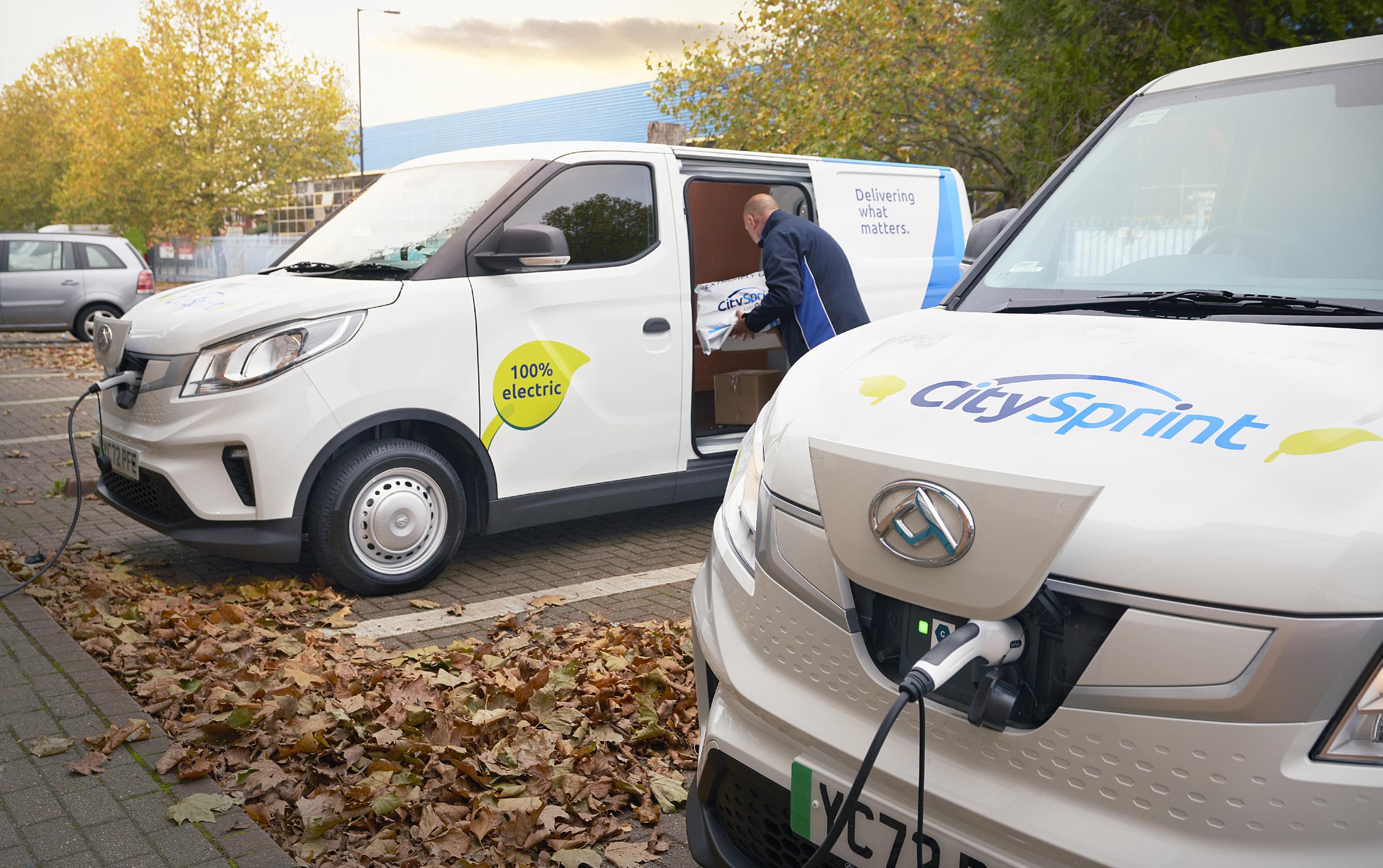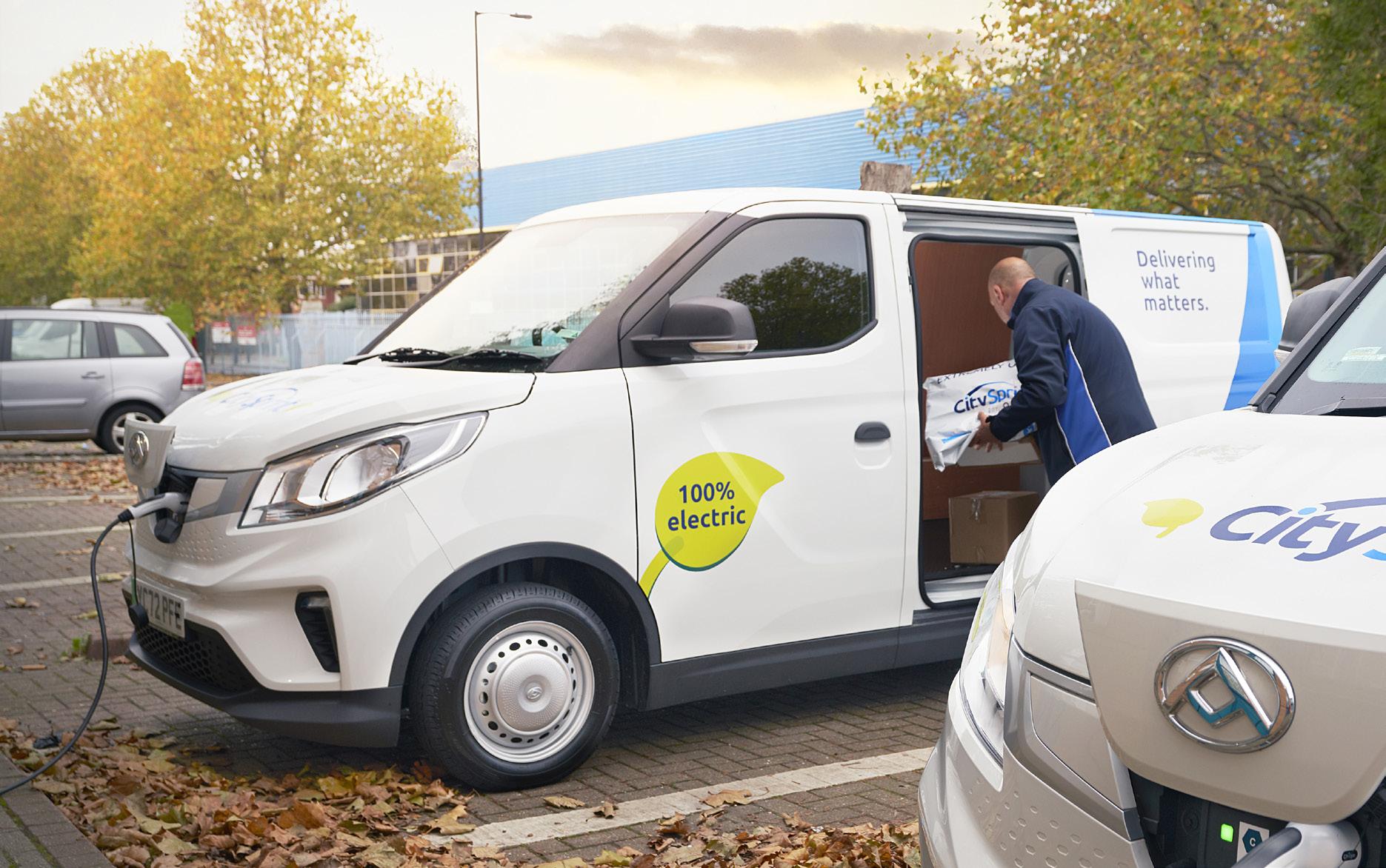
4 minute read
Making the last mile electric
from GreenFleet 145
by PSI Media
Many last mile logistics companies are investing in electric vehicles, cargo bikes, delivery hubs and charging infrastructure to help them meet environmental targets, comply with clean air zones, and operate more efficiently
The government’s Transport Decarbonisation Strategy says that by 2030, the last mile of deliveries will be largely decarbonised through new delivery models, supported by accurate data and digital innovations driving greater efficiencies. By the same timeframe, it says that HGVs will be increasingly zero emission and cities will have the logistics solution that best fits them, allowing places to become more people centred while still delivering goods rapidly and reliably.
With urban centres challenged by traffic, restricted parking and air quality measures, it is little surprise that there is a push to eliminate the emissions caused by urban operations and last mile deliveries. Increasingly more companies are investing in electric vehicles, cargo bikes, delivery hubs and charging infrastructure to help them comply with clean air zone restrictions and operate more efficiently.
DPD’s growing electric ambitions DPD specialises in UK domestic nextday and international deliveries. It operates from 84 locations and delivers over 400 million parcels a year.
In 2018, DPD opened its first all-electric parcel delivery depot in Westminster. DPD currently has 3,000 EVs on the road in the UK and has announced plans to deliver to 30 of the largest towns and cities in the UK with zero and low-emission delivery vehicles by the end of 2023. In July 2021, Oxford became DPD’s first all-electric city in the UK. DPD has recently completed the acquisition of final mile courier company Absolutely and in 2021 also bought CitySprint to further strengthen its same day delivery capabilities across the UK. Absolutely operates across the South East, with a fleet of circa 200 couriers servicing more than 2,500 clients.

Its fleet includes an expanding number of zero-emission vehicles, such as cargo bikes and pushbikes, alongside vans and motorbikes. Its offer also includes temperature controlled courier services. Meanwhile, CitySpring has recently announced the expansion of its electric vehicle fleet with the acquisition of 40 new Maxus electric vans, which have been strategically deployed across the UK with the aim of helping to reduce pollution levels in key cities including London, Leeds, Bristol, Manchester, Southampton and Birmingham. As a result of this acquisition, CitySprint’s electric vehicle fleet now comprises of 43 electric vans, 24 cargo bikes, six electric motorbikes and four electric bicycles, with the business continuing to explore ways to further grow this in the year ahead.
Disrupting the sector
Packfleet is a relatively new company. It started in 2021 by early-Monzo employees with a quest to revolutionise the parcel delivery sector, which they saw was “broken”.
Using logistics technology similar to the tech used by Deliveroo and Uber Eats, Packfleet can predict delivery times within the minute, and their in-house routing engines mean every driver is on the most efficient route possible –reducing carbon wherever possible.
The company runs an all-EV fleet from its base in London, which are charged using renewable energy. They deliver from mostly independent businesses and have a very strong focus on workplace culture.

Tristan Thomas, co-founder & CEO of Packfleet, told GreenFleet: “The idea for Packfleet came in 2021, when I realised how broken the customer experience with couriers really is. The frustration and apathy we feel for delivery brands has become the norm, and there was a clear gap in the market for a courier service that customers could love.”
Amazon’s micromobility delivery hubs
Amazon has progressed its five-year, £300 million investment in the electrification and decarbonisation of its transportation network by launching three further micromobility delivery hubs in Manchester and London, and expanding its e-cargo bike delivery fleet.
The e-cargo bikes and walkers are expected to make more than two million deliveries a year. These deliveries will take traditional delivery vans off the nation’s roads, alleviate city centre traffic congestion and improve air quality.
The hubs join Amazon’s existing central London e-cargo bike fleet which was recently announced in July. Amazon has already made more than five million deliveries so far in 2022 using its e-cargo bikes and electric van fleet within London’s Ultra Low Emission Zone. Making e-cargo bike deliveries to Manchester’s customers for the first time, Amazon’s electric delivery fleet will operate across the City of Manchester. New delivery hubs based in London’s Wembley and Southwark will also more than triple the e-cargo bike fleet making deliveries to Amazon’s customers across the capital.
DHL Express continues to electrify
DHL Express has rolled-out 270 new electric vans, which will be taking to roads across the country as part of its last-mile fleet. They add to the 50 electric vans that already operate out of sites across the UK. By 2030, the business is committed to an electric UK-wide courier fleet.

The zero emissions Ford E Transits have a range of 140 miles and a payload of approximately 1000kg, similar to the diesel vans they are replacing.
DHL has also been focussed on developing its infrastructure to support the EV roll-out and in addition to stand-alone charging points across the Service Centre network, now operates a number of fully integrated EV-ready sites. The integrated charging infrastructure is scalable to allow for additional electric vehicles as the fleet grows in the coming years.
Rental hub for electric delivery vehicles
Technology company Port has launched a rental hub of electric vehicles in London, which are locked and charged in docking stations deployed in an inner city, off-street parking site. The hub has been launched in partnership with parking operator Q-Park at their Leicester Square car park.
The mobility-as-a-service hub concept enables individual couriers or delivery firms to rent small delivery EVs (including electric bikes, cargo ebikes, mopeds or scooters) from a Port urban car park location. EVs are hired on a weekly or monthly subscription through the Port app, and the vehicle, parking, charging, maintenance and software are all provided by Port.
Once the courier has picked the vehicle from the hub at any time, they undertake their deliveries before returning the EV to the hub at the end of their working day. The vehicle is locked, parked and charged overnight and then ready to be rented the next day. The long range and battery capabilities of the EV means it can be used for an entire day of work.
The platform also removes all the courier companies’ electric fleet parking, charging, maintaining, financing and managing burdens. L










